Health & Education
We all want the best care possible for our horses. The Heath & Education section covers both Learning Institutions, Organizations as well as many sources for equine assistance including Veterinarians and Farriers.
For those who want a to formally study horses, the Education section includes College Riding, Equine Studies, and Veterinary Schools. Learn about the wide variety of horses in the Horse Breeds section. Supplements and Treatments Therapy are also included in the section.
Everyone can learn from Fine Art and there are some specialty Museums that might surprise you.
Horses as a therapy partner enrich the lives of the disabled. These facilities are listed in our Therapeutic Riding section. To help children and young adults build confidence and grow emotionally, please see the resources available on the Youth Outreach page.
Looking for a place to keep your horse? You can find it in the Horse Boarding section. Traveling? Find a Shipping company or Horse Sitting service if your horse is staying home!
Want to stay up to date with the latest training clinics or professional conferences? Take a look at our Calendar of Events for Health & Education for the dates and locations of upcoming events.
Do we need to add more? Please use the useful feedback link and let us know!
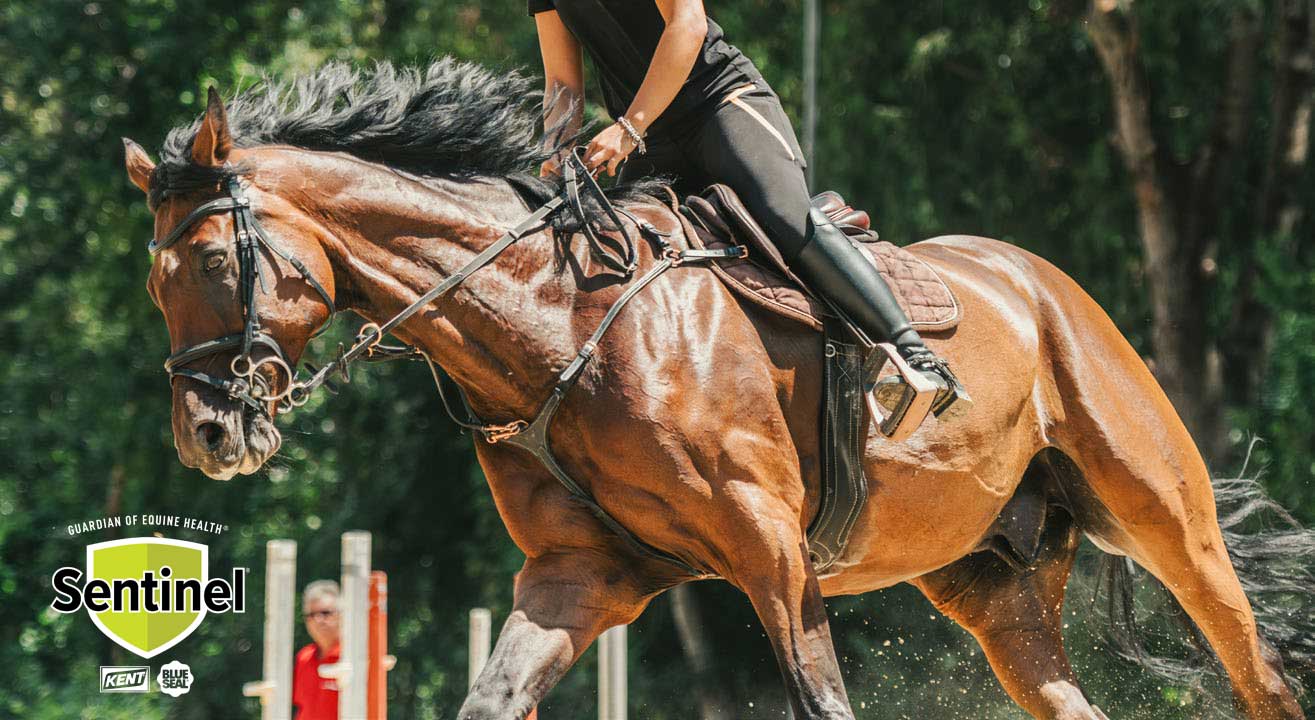
Sentinel Horse Nutrition offers expert guidance in their eBook "Helping All Horses Live Healthier Lives". Read the excerpt below and be sure to get your free copy of the entire eBook!
Protein and Muscle Recovery for Performance Horses
Protein is a vital part of a horse’s diet. This is particularly true of performance horses as protein aids in muscle development, repair and overall health. Understanding the importance of specific amino acids will give your clients’ horses the best chance of top performance and recovery.
Amino acids: the building blocks of muscle.
Amino acids are the building blocks of protein, but not all amino acids are equally present in an equine diet. Limiting amino acids, such as lysine, methionine and threonine, cannot be synthesized by the horse and must be provided through feed. When these essential amino acids are in short supply, the horse’s ability to utilize other amino acids is restricted, which can negatively impact muscle development, repair and overall performance.
Competitive horses with an amino acid deficiency may exhibit signs such as poor topline development, muscle loss despite adequate caloric intake, delayed recovery after exercise and lack of stamina. Behavioral indicators may include reluctance to engage in strenuous activity, difficulty building or maintaining muscle mass and a dull coat, as protein also plays a role in skin and hair health. Ensuring a balanced intake of essential amino acids is critical in supporting peak athletic performance, strength and recovery.
In equine nutrition, the primary limiting amino acids are:
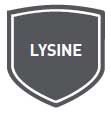 Often the first limiting amino acid in equine diets, lysine is essential for growth and muscle development.
Ensuring adequate lysine intake supports optimal protein synthesis.
Often the first limiting amino acid in equine diets, lysine is essential for growth and muscle development.
Ensuring adequate lysine intake supports optimal protein synthesis.
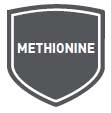 This sulfur-containing amino acid plays a role in the synthesis of other proteins and supports hoof and
hair health.
This sulfur-containing amino acid plays a role in the synthesis of other proteins and supports hoof and
hair health.
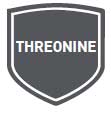 This amino acid is important for immune function and gut health and contributes to muscle protein synthesis.
This amino acid is important for immune function and gut health and contributes to muscle protein synthesis.
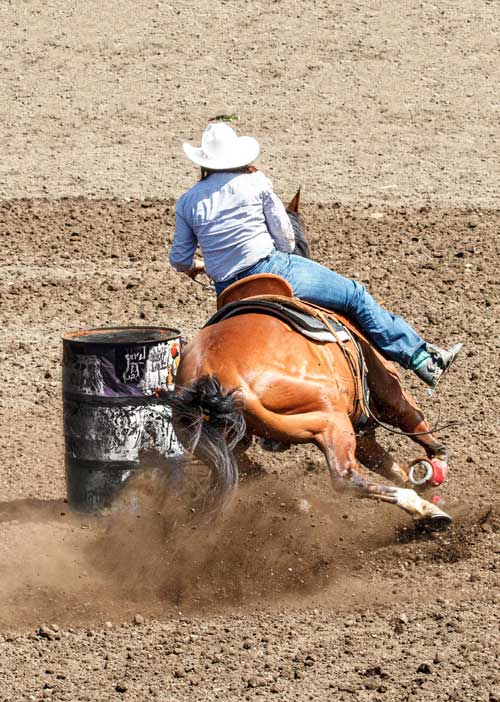
Protein quality and digestibility.
Incorporating high-quality protein sources like soybean meal or alfalfa ensures the availability of essential amino acids necessary for muscle maintenance and repair. Performance horses experience significant muscle stress during training and competition, and intense exercise can cause microdamage to muscle fibers, requiring proper protein intake for recovery and adaptation.
Without adequate amino acids, muscle recovery slows, leading to fatigue, loss of topline and diminished performance. Ensuring a diet rich in essential amino acids supports strength, endurance and the ability to perform over time.
“Protein plays a vital role in muscle development, tissue repair and the horse’s overall health, but it works best as part of a wellrounded diet,” Sturken says. “It's important to balance protein with other energy sources to meet the horse's overall nutritional needs without overloading.”
Get Your Free eBook
You can find out more about protein and muscle recovery for performance horses in the full eBook "Helping All Horses Live Healthier Lives".

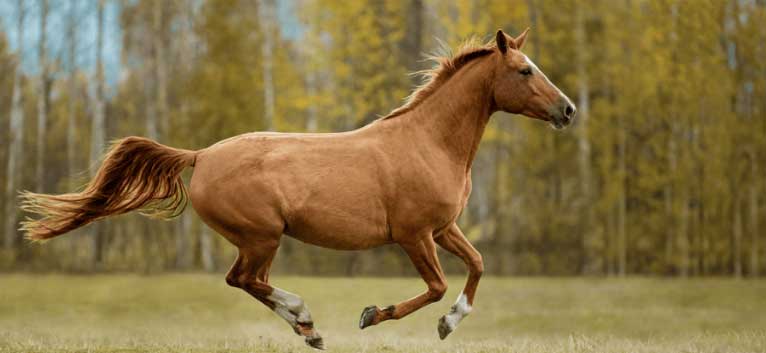
by Kentucky Equine Research Staff
Back pain occurs frequently in horses and, depending on the degree of discomfort, can limit performance. To better understand back pain in athletic horses, veterinarians examined 75 horses with histories suggestive of back problems using equipment and techniques available to most practitioners.*
Horses were first examined at rest, noting conformation idiosyncrasies and muscle atrophy, as well as skin lesions from saddle marks. Responses to digital manipulation along the spine were also recorded.
Rectal examinations performed on all horses revealed any abnormalities or pain in the pelvis (e.g., myositis, sacroiliitis, pelvic fracture, spondylosis, other sources of pain). Horses were then evaluated while hand-walking, longeing, and under saddle when ridden and jumping. Stretching exercises were also performed, enticing horses to take part by using treats placed by the horses’ elbows or between the forelimbs.
“At the walk, many horses had restricted hind limb movement and mobility, often raising the head and arching the back,” described Kathleen Crandell, Ph.D., a nutritionist for Kentucky Equine Research.
Further, tail-swishing when transitioning from trot to canter, stiffness, and poor hind limb impulsion were frequently noted. When horses were jumping, mistakes and refusals, including sliding stops, were noted.
Lateral radiographs of the thoracic dorsal spinous process and ultrasound examinations of the supraspinous and sacroiliac ligaments were performed. When indicated, mepivacaine blocks were performed in the interspinal space between painful spinous processes or the sacroiliac joint.
In that population of 75 horses, 18 horses were diagnosed with muscular strains, 30 cases of sacroiliac pain, and 16 cases of vertebral lesions such as crowding or spondylosis.
“Sacroiliac desmopathy was highly prevalent among the presented cases while interspinous desmopathy came next,” according to the examining veterinary team.
The team noted that back disorders may be attributable to ill-fitting tack, inadequate training, improper shoeing, and unequal distribution of rider weight.
Specific diagnoses may include lesions of the supraspinous, interspinous, and sacroiliac ligaments; strains of the longissimus muscle; impinging dorsal spinous processes or kissing spines; osteoarthritis; intervertebral disc disease; and vertebral fractures.
“In addition, the veterinarians cited poor management, including inadequate nutrition, as a potential contributing factor for back pain. Low-quality feeds and forages may not supply adequate nutrients important for strength and durability of the musculoskeletal system.
Making sure your horse has a balanced diet with quality ingredients and proper amounts of vitamins and minerals is key to supporting healthy bone and muscle tissue,” advised Crandell.
Supporting optimal joint health can be achieved, at least in part, by supplementing horses with glucosamine, chondroitin sulfate, hyaluronic acid, and MSM found in quality supplements such as KER-Flex.
Horses included in this study were treated conservatively with rest for one to three months based on severity and nonsteroidal anti-inflammatory drugs (oral phenylbutazone or “bute”). In addition, horses that responded to the mepivacaine blocks were subsequently injected with the corticosteroid triamcinolone acetonide.
“Adequate rest and early treatment were prerequisites for recovery,” concluded the veterinarians.
*Shokry, M., L.B. Ali, and M. El-Sharkawy. 2025. Relationship between back pain and poor performance in show jumping athletic horses. Open Veterinary Journal 15(3):1480-1487.
Reprinted courtesy of Kentucky Equine Research. Kentucky Equine Research is an international equine nutrition, research, and consultation company serving horse owners and the feed industry.
Our goals are to advance the industry's knowledge of equine nutrition and exercise physiology, apply that knowledge to produce healthier, more athletic horses, and support the nutritional care of all horses throughout their lives. Learn more at Kentucky Equine Research.
There a more informative articles in our section on Health & Education. While you're here be sure to visit our Curated Amazon Store.

By Juliet M. Getty, Ph.D.
If you have pasture but hesitate to let your insulin-resistant horses graze, you may be pleasantly surprised. With the right approach, you can make use of your pasture, reduce your reliance on hay, and support your horse’s overall well-being. Consider this: insulin-resistant horses are under significant oxidative stress and inflammation. Restricting them to a dry lot with only hay can actually intensify that stress response. In contrast, allowing controlled access to pasture can offer natural enrichment and may be a valuable step toward healing.
Your hesitation may be well-founded, particularly if the pasture is high in sugar and starches. This concern is heightened when the grass is overly short, regularly fertilized, or consists of a single grass species without any edible weeds. Horses tend to consume copious amounts rapidly, which can cause a sharp increase in blood insulin levels — raising the risk of insulin resistance and potentially triggering laminitis.
Add in the cold nights of early spring and the cooling temperatures of fall, when grasses naturally hold onto higher levels of sugar and starch, and you have a potentially dangerous situation. When nighttime temperatures drop below 40°F, it becomes especially risky to allow pasture grazing the following morning — particularly for insulin-resistant horses — because the cold conditions cause grasses to store even more sugar and starches. These seasonal shifts make pasture-grazing management critical to protecting your horse’s metabolic health.
Summer has arrived for most of us, and with it comes greater stability in the sugar and starch levels of pasture grasses. So why assume your pasture is unsafe? Without testing, any concern is purely speculative. In fact, in many cases, pasture grasses have tested lower in sugar and starch than the hay being fed.
The only way to know for sure is to have your pasture analyzed. Testing for sugar and starch gives you a clear picture of how your pasture is behaving. Specifically, measuring ESC (ethanol soluble carbohydrates) will tell you the sugar content — the primary factor influencing insulin levels. Starch breaks down into glucose and can raise insulin as well. Knowing these numbers takes the guesswork out of pasture management, especially for horses with metabolic concerns.
Understanding carbohydrate patterns in pasture grass
Grasses generate simple sugars (ESC) and starch through photosynthesis when exposed to sunlight. On bright, sunny days, ESC and starch levels peak in the late afternoon to early evening.
As evening sets in, the grass begins using these stored carbohydrates for its own metabolic needs. This process continues overnight, and by early morning, ESC and starch levels are at their lowest.
On cloudy or rainy days, photosynthesis is reduced, resulting in lower overall sugar and starch production.
But sugar and starch can increase when:
- Grasses are under stress—from drought, overgrazing, or frequent mowing—they tend to retain higher levels of ESC and starch as a survival mechanism. To prevent this, avoid mowing shorter than 4 inches.
- Grass is allowed to grow excessively tall, leading to the formation of seed heads, which are high in carbohydrates and can pose a risk to insulin-sensitive horses.
Best- and worst- case scenarios for pasture testing
Remember, your pasture is a living, dynamic system, and any test you perform is simply a snapshot of its current condition. For more accurate insight, it’s ideal to test two or three times on your chosen day and repeat testing every two weeks. Below are guidelines for selecting times to test when managing insulin-resistant (IR) horses:
- Best case scenario: Test early in the morning, just before sunrise, following a sunny day. This timing typically offers the lowest levels of sugar (ESC) and starch and gives you the best estimate of how safe the pasture is for early-morning grazing by an IR horse.
- Worst case scenario: Test in the late afternoon, between 5:00 and 6:00 p.m., after a full sunny day. This is when sugar and starch levels are at their highest, and it represents the riskiest time for an IR horse to graze.
- Midday testing (optional): Testing around 11:00 a.m. on a sunny day can help you determine a safe time to bring horses off pasture before carbohydrate levels begin to climb.
How to test your pasture
For accurate results tailored to horses, Equi-Analytical Labs is an excellent choice, as their analysis is geared toward equine needs rather than cattle. Testing instructions are straightforward and available on their website: https://equi-analytical.com/feed-and-forage-analysis/taking-a-sample/
Here’s a summary of the process:
- Randomly select about 15 locations throughout your pasture.
- Clip the forage at the height your horse typically grazes. For instance, if the grass is 10 inches tall and your horse grazes the top 4 inches, clip just those top 4 inches.
- Cut the samples into small pieces, mix thoroughly, and place them into the bag provided by the lab.
- Freeze the sample overnight, then mail it in according to their shipping instructions.
On the order form, choose:
- “Fast Track” for carbohydrate levels (including ESC and starch), or
- “Equi-Tech #601” if you'd also like a mineral analysis.
For international submissions, guidelines can be found here: https://equi-analytical.com/feed-and-forage-analysis/submitting-a-sample/international-sample-submission/
Understanding key terms in your analysis report
It is important to understand the terminology used in your pasture analysis report:
- Percent Moisture and Dry Matter – These two values always add up to 100%. Since pasture grass contains a large amount of water, the moisture percentage will be high.
- “As Sampled” column – Reflects the nutrient content of the grass with its natural moisture. This represents what your horse is consuming in the pasture.
- “Dry Matter” column – Shows the nutrient content of the forage without any moisture. These values are more concentrated and allow for more accurate comparisons, especially when evaluating hay or other dry feeds.
- Digestible energy (DE) – Indicates how energy-dense, or “fattening,” the forage is. Expressed in megacalories (Mcal) per pound or kilogram.
- Water soluble carbohydrates (WSC) – Includes simple sugars and fructans. Fructans are not a concern for insulin-resistant horses since they do not raise insulin levels.
- Ethanol soluble carbohydrates (ESC) – Represents only the simple sugars—the main contributors to an insulin response.
- Starch – Long chains of glucose that break down during digestion into individual glucose molecules, raising blood insulin levels.
- ESC + Starch – This is the most important calculation for insulin-resistant horses. Add the ESC and starch values from your report to assess the forage’s insulin impact.
- Non-structural carbohydrates (NSC) – Often confused with more relevant values, NSC is calculated as WSC + Starch. It’s no longer used as a reliable indicator for insulin resistance because WSC includes fructans, which do not influence insulin. For this reason, ESC + Starch is now the preferred measure.
Use the Dry Matter column to compare pasture to hay
When analyzing hay for insulin-resistant horses, we aim for an ESC + Starch value of less than 10% on a dry matter basis. To evaluate your pasture in the same way, refer to the “Dry Matter” column in your pasture analysis report. Add the ESC and Starch values together—ideally, this combined number should also be below 10%.
Another key value to watch is Digestible Energy (DE), which indicates the caloric content of the grass. DE is expressed in megacalories (Mcal) per pound or kilogram. For pasture to be considered low enough in calories for an overweight insulin-resistant horse, the DE should be below 0.94 Mcal/lb (or 2.08 Mcal/kg) on a dry matter basis.
Do we still consider NSC?
Not usually—not when evaluating forage for insulin-resistant horses. Most cases of laminitis related to pasture are driven by elevated insulin levels, not fructans. However, reviewing the NSC (Non-Structural Carbohydrates) can still offer insight, particularly into fructan content.
Here’s a quick refresher on the calculations:
- NSC = WSC + Starch
- WSC = ESC + Fructans
Let’s break down an example:
- WSC = 11%
- ESC = 6%
- Starch = 2%
In the past, we would calculate NSC by adding WSC and Starch:
11% + 2% = 13%, which was considered the upper limit for safety. But today, the more accurate approach is to look at ESC + Starch, because these are the components that directly raise insulin levels:
6% + 2% = 8%, which is well under the 10% threshold—making this pasture suitable for an insulin-resistant horse.
A Real-Life Example: Best-case vs Worst-case Scenario
The following results come from actual pasture samples collected at 7:00 AM and again at 6:00 PM on the same day. Both days—prior to and including the sampling day—were sunny, and the testing took place during the summer.
7:00 AM Sample – Best-case scenario for an IR horse
(Dry Matter Basis):
- Digestible Energy (DE): 0.85 Mcal/lb
- ESC (Simple Sugars): 4.7%
- Starch: 0.2%
- ESC + Starch: 4.9%
6:00 PM Sample – Worst-case scenario for an IR horse
(Dry Matter Basis):
- Digestible Energy (DE): 0.86 Mcal/lb
- ESC (Simple Sugars): 6.9%
- Starch: 3.4%
- ESC + Starch: 10.3%
What these numbers tell us…
The morning sample is ideal for insulin-resistant horses, with an ESC + Starch total of just 4.9%—well below the recommended 10% maximum. Grazing during early morning hours under these conditions is generally safe and beneficial.
By contrast, the evening sample shows a significant rise in sugar and starch content after a full day of sun exposure. The ESC + Starch value climbs to 10.3%, which may be too high for sensitive horses, particularly those prone to insulin spikes or laminitis.
The digestible energy levels in both samples are suitably low for managing an overweight horse.
This example clearly illustrates how pasture sugar and starch levels can change significantly throughout the day—highlighting the importance of timing when managing grazing for insulin-resistant horses.
While midday values were not measured in this case, it’s well established that sugar and starch levels tend to rise steadily as sunlight increases. For added safety, consider removing your horse from pasture and transitioning to a dry lot with properly tested, low-sugar, low-starch hay around midday—when the sun is at its peak.
Bottom line
Putting in a little effort to test your pasture can make a substantial difference in supporting your insulin-resistant horse’s natural way of life—as a grazing animal. Since pasture conditions vary with weather, season, and management, it’s wise to test multiple times throughout the year to understand how your grass responds under different circumstances. You may find that your pasture is safer than expected -- good news for both you and your horse.

About the Author - Juliet M. Getty, Ph.D. has been working with horse owners for more than 25 years. A pioneer in free choice forage feeding, Dr. Getty’s philosophy is founded on feeding a horse in sync with his natural needs and instincts. She approaches equine health from a holistic perspective and considers nutrition a critical (and too often overlooked) element in the prevention and treatment of disease and disorders. Her unbiased opinions and recommendations are based on scientific research and are independent of feed, supplement, or pharmaceutical company influence.
Through private consultations, she designs customized feeding plans to promote horses’ health, reverse illness, and optimize performance; she believes every horse owner should include sound nutrition practices to give every horse a lifetime of vibrant health. Dr. Getty lives in Denton, Texas, in the Dallas/Fort Worth area with her husband.
This article originally appeared on Getty Equine Nutrition and is published here with permission.
Find more informative articles in our section on Health & Education. While you're here, take a look at our Curated Amazon Store.
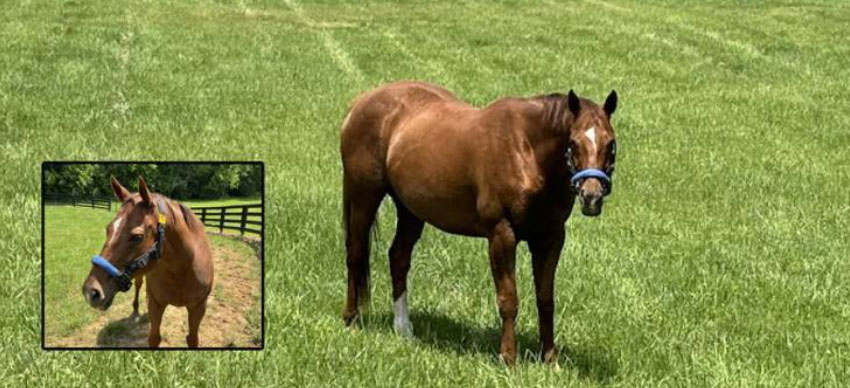
by Molly Todd, intern at Kentucky Equine Research.
Over the last year, Kentucky Equine Research has used chewing halters to record chewing frequency and to analyze the health and welfare of horses by observing behavioral changes during feeding.
The RumiWatch system was originally designed by a Swiss company to track rumination, grazing, standing, and other behaviors of cattle. Once the precision and accuracy of this technology was confirmed, the manufacturer designed a version for horses, called EquiWatch, which passed similar validation trials (Cunningham, 2018; Werner et al., 2020; and Weinert et al., 2020).
According to one research team, “the EquiWatch system can generate data necessary for more fully characterizing feeding behaviors in horses. Data output from the EquiWatch system can be used to determine the specific timing and duration of grazing activity as well as the vigor of pasture forage consumption over a selected interval” (Weinert et al., 2020).
The EquiWatch chewing halter features a sensor that detects pressure changes in an oil-filled tube within the noseband. The sensor is attached to a data logger on the cheekpiece of the halter. The halter also features a battery-powered three–axis accelerometer that detects changes in head position and temperature. All the components are watertight, so the halters can be used in field conditions.
Fitting the halters correctly is important for accurate data collection. The noseband must be adjusted three fingers’ width below the cheekbone and be snug around the muzzle so only two fingers can lie flat between it and the nose bridge.
The halters record data to an SD memory card. Data include time spent eating and the total number of chews, both of which can be split into whether the chewing was performed with the head up or the head down.
In previous studies using the chewing halters, researchers have collected data from horses eating only forage. Scientists at Kentucky Equine Research are now using chewing halters to investigate common feeds used in the management of horses. Chewing halters are fitted on the horses before they are fed a defined amount of feed. Following the completion of the meal, any spilled feed is collected to determine feed intake. From the data collected from the chewing halters, we can calculate variables such as chews per minute, chews per gram of feed intake, and rate of intake. We can compare these variables among feeds with different nutritional compositions, physical form (pellets versus cubes versus textured), and palatability.
Factors that may affect chewing (ingestive behavior) include particle length, elasticity, moisture, flavor, volume, and fracture volume. Animal behavior also plays a role in ingestive behaviors, such as age, preference, condition, previous experience, health status, and temperament.
Chewing starts both chemical and mechanical digestion of feedstuffs due to the production and mixing of saliva and reduction of particle size. Observing and understanding jaw movement can also help researchers better understand how to reduce stomach ulcers as well as assist with dentistry (Werner et al., 2016).
To learn more about the work done at Kentucky Equine Research using chewing halters, read this research abstract: Chewing Requirements and Glycemic Response of Fibrous Feedstuffs.
This article was written by Molly Todd, a year-long intern at Kentucky Equine Research. As part of the intern program, participants are asked to contribute to Equinews. Learn more about the internship program.
Reprinted courtesy of Kentucky Equine Research. Kentucky Equine Research is an international equine nutrition, research, and consultation company serving horse owners and the feed industry. Our goals are to advance the industry's knowledge of equine nutrition and exercise physiology, apply that knowledge to produce healthier, more athletic horses, and support the nutritional care of all horses throughout their lives. Learn more at Kentucky Equine Research.
There a more informative articles in our section on Health & Education. While you're here be sure to visit our Curated Amazon Store.
References:
Cunningham, M. 2018. Validation of the RumiWatch System to measure chewing activity of horses on restricted and ad libitum feeding systems. Thesis, University of Limerick.
Ellis, A.D. 2010. Biological basis of behaviour and feed intake. In: A.D. Ellis, A.C. Longland, M.
Coenen and N. Miraglia. 2010. The impact of nutrition on the health and welfare of horses. EAAP Publication No. 128, Wageningen Academic Publishers, pp. 53-74.
Weinert, J.R., J. Werner, and C.A. Williams. 2020. Validation and implementation of an automated chew sensor–based remote monitoring device as tool for equine grazing research. Journal of Equine Veterinary Science 88:102971.
Werner, J., C. Umstatter, N. Zehner, J.J. Niederhauser, and M. Schick. 2016. Validation of a sensor-based automatic measurement system for monitoring chewing activity in horses. Livestock Science 186:53-58.
To help reduce the risk of fire spreading in your stable, consider the following 7 principles when building or renovating:

1. Construction Materials
Consider building materials that do not burn as readily
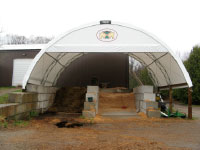
2. Compartmentation
Large open spaces will allow a fire to spread more easily vs. separate rooms
Separate mechanical and service rooms with doors with closers will reduce spread, as well as separate hay/bedding storage
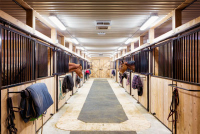
3. Means of Egress – Exits
Have at least 2 ways out of the barn
Uncluttered wide aisles will assist when exiting

4. Interior Finishes
Type of material(s) used to cover walls, ceilings and floors can affect how far and fast the fire travels

5. Building Services
Ensure your services (i.e. electrical service, plumbing, heating and ventilation systems) are professionally installed and properly maintained

6. Fire Detection Systems
Consider smoke and fire alarm systems suitable for farms
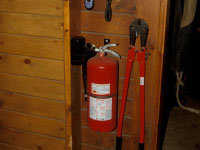
7. Fire Protection Services
Consider fire suppression systems, fire extinguishers and on-site water sources such as a pond accessible for fire department use
This article originally appeared on Equine Guelph, The University of Guelph and is published here with permission.
You can find more informative articles in our section on Health & Education.
While you're here, find some perfect items for your horse! Visit our curated Amazon Store.
Barn fires are devastating events for the equine community to deal with, and the emotional toll and financial impact can be felt for years. Understanding the common causes, and taking action to address them, will help reduce the risk of such a catastrophic event occurring.
The three leading causes of preventable barn fires are outlined below along with practical tips in prevention:
Electrical

Deteriorated electrical breaker/fuse panels/deteriorated loose connections
Extension cords & power bars used instead of properly installed permanent wiring

Appliances
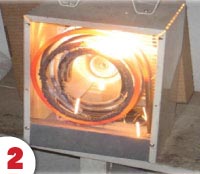
Use of household appliances (i.e. coffee makers, microwaves and fridges)
Laundry-dryer’s electrical plug connection failures, lint build up and improper exhaust

Storage & Use of Flammables in Barn
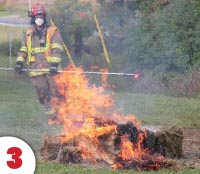
Hay & bedding stored in barn
Fuel & other flammables stored improperly

This article originally appeared on Equine Guelph, The University of Guelph and is published here with permission.
You can find more informative articles in our section on Health & Education.
While you're here, find some perfect items for your horse! Visit our curated Amazon Store.
Julie Goodnight will demonstrate on how to properly adjust the Rope Halter This is a educational and safety video brought to you by the Certified Horsemanship Association (CHA) For more information on the largest certifying body of riding instructors and barn managers in North America, Certified Horsemanship Association, please visit www.CHA.horse. To find a certified equine professional or accredited equine facility near you, visit www.CHA.horse
Read more: Rope Halter Safety and Adjustment with Julie Goodnight
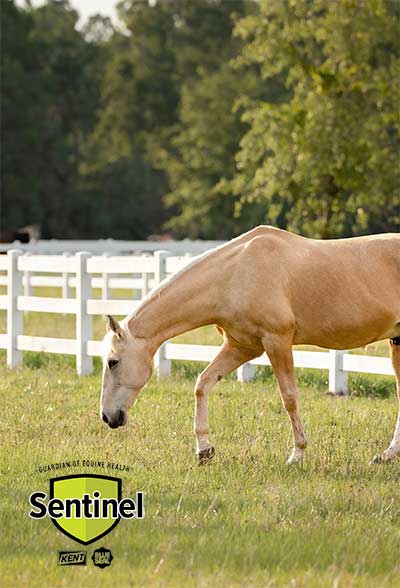
We've all encountered this as horse owners, the "easy" and "hard" keeper. Feeding horses can be a complex endeavor, and the challenges are particularly pronounced when dealing with "easy keepers" (those who gain weight readily) and "hard keepers" (those who struggle to maintain weight). Both extremes require careful management to ensure optimal health and prevent serious health issues.
Sentinel Horse Nutrition offers expert guidance in their eBook "Helping All Horses Live Healthier Lives". Read the excerpt below and be sure to get your free copy of the entire eBook!
Crafting diets for easy and hard keeper horses.
Giving weight to a custom equine feed plan.
Finding the right nutritional balance is essential for every horse, but it becomes especially critical when feeding easy and hard keepers, animals that have an “easy” or “hard” time maintaining their weight. For example, an overweight horse with insulin resistance may require a carefully controlled starch and sugar intake. Meanwhile, an underweight horse recovering from illness may need more calories to rebuild strength and immunity. Both scenarios require a tailored approach to maintain optimal body condition for long-term health and vitality.
It’s important to note, not all horses should be considered easy or hard keepers. Most horses’ weights will fluctuate throughout their lives. A horse's metabolism plays a key role in determining whether it is an easy or hard keeper.
Breaking down easy and hard keeper conditions.
 Easy Keepers: Easy keepers generally include ponies, draft horses and some stock breeds. Some factors that might influence an easy keeper's weight include:
Easy Keepers: Easy keepers generally include ponies, draft horses and some stock breeds. Some factors that might influence an easy keeper's weight include:
Behavior: Horses that are calm or less active burn fewer calories throughout the day.
Breed: Ponies and draft horses are genetically predisposed to thrive on limited forage.
Seasonal: Some horse breeds, such as ponies, conserve energy and store fat for periods with limited forage.
Some health conditions can lead to challenges with weight loss. These may include:
Obesity: Easy keepers can gain excess weight, which may lead to metabolic disorders.
Laminitis: Overweight horses, especially those with access to rich pastures or high-starch feeds, may be at greater risk.
Nutritional imbalances: Limiting feed intake to control weight may lead to deficiencies in essential vitamins and minerals.
 Hard Keepers: Usually, certain types of horses and breeds are classified as hard keepers. These include racing horses like thoroughbreds and standardbreds because they have very active metabolisms. Other factors may include:
Hard Keepers: Usually, certain types of horses and breeds are classified as hard keepers. These include racing horses like thoroughbreds and standardbreds because they have very active metabolisms. Other factors may include:
Behavior: Horses that are high strung or active burn more calories each day.
Breeding: Stallions tend to burn more calories each day, and broodmares require more calories during late pregnancy and lactation.
Age: Senior horses don’t metabolize nutrients as well as younger horses.
Competition and training: Performance horses require more calories in their diets.
Some health conditions and social considerations can also lead to challenges with weight gain. These may include:
Poor dental health: Deteriorating teeth condition can cause pain and discourage eating.
Parasites: An infection of internal parasites can cause weight loss.
Herd dynamics: Less dominant horses may get run off their feed.
Lameness: An injury can discourage eating.
Illness: A sick horse may be less prone to routine eating.
Get Your Free eBook
You can find out more about the requirements for "easy" and "hard" keeper horses in the full eBook "Helping All Horses Live Healthier Lives".

Horse shows have always been about more than ribbons. They’re communities. They’re proving grounds. They’re places where kids grow up, professionals shape their craft, and horse lovers gather to celebrate their shared passion. But anyone who’s been part of the sport for more than a few years will tell you—horse show culture has changed.
In Episode 437 of The Plaidcast, long-time horseman and show manager Berry Porter joined host Piper Klemm to reflect on those shifts. With over 70 years of experience in the saddle and behind the scenes, Porter has watched the horse show world evolve from local weekend gatherings into massive, professionally run events. His stories and Klemm’s observations offer a window into what’s changed, what’s been lost, and why the core of the culture is still worth holding onto.
From Backyard Rings to Multi-Million Dollar Venues
“Things are different now,” Porter said simply. “It’s bigger, faster, more expensive.”
Today’s horse shows often span multiple rings, run for weeks at a time, and attract competitors from across the country. They feature elaborate setups, livestreaming, high-end sponsorships, and prize money once unheard of in the sport. Klemm noted that while this evolution has elevated the visibility of the industry, it’s also created pressure.
“We see these incredibly polished videos and curated experiences,” she said. “But there’s a real gap between that and what a lot of people experience day to day. It can make the sport feel less accessible.”
That accessibility issue is echoed in Porter’s observations. While he’s proud of how far the sport has come, he’s also seen how rising costs and intense competition have pushed some people away from the showgrounds entirely.
“In the old days, people just came out to be part of it,” he said. “You didn’t have to win to feel like you belonged.”
A Shift in Priorities and Pace
One of the biggest cultural changes Porter noted is the shift in how people experience the showgrounds.
“It used to be that everyone stayed at the ring to watch and support each other. Now it feels like everyone’s in a rush,” he said.
That sense of community—gathering to watch classes, celebrate good rounds, and debrief bad ones—isn’t gone, but it’s thinner than it used to be. Riders often juggle tight schedules, multiple horses, and long days, making it harder to linger and connect. Meanwhile, increased emphasis on winning and qualifying can leave less room for sportsmanship and fun.
Klemm echoed this sentiment. “We used to learn by watching. Watching our friends, watching our heroes. That’s harder now when everyone’s spread so thin or glued to their phones.”
Yet both agree that cultivating that shared experience is critical to the sport’s longevity.
Holding Onto Tradition Without Stopping Progress
Neither Porter nor Klemm is interested in turning back the clock. They’re both deeply engaged in the present and believe in the potential of today’s riders, trainers, and show managers to build a positive future for the sport.
But that doesn’t mean forgetting the past.
“There’s a lot of tradition in this sport that’s worth keeping,” Porter said. “Things like showing up early to help, staying to cheer people on, and giving back when you can. That’s what makes the sport strong.”
Klemm pointed out that the next generation of equestrians has a real opportunity to redefine the culture without losing the values that matter.
“It’s not about nostalgia. It’s about connection,” she said. “We have to keep asking how we make this sport feel like home, not just a competition.”
People Still Matter Most
At the core of every good horse show culture are the people who make it happen. From the volunteers and ring crew to the show managers and stewards, the sense of community often depends on individuals who care more about participation than prestige.
Porter, who still volunteers regularly, believes this is one of the most important things to protect.
“Not everyone can be a top rider,” he said. “But everyone can contribute something. And when people feel like they matter, they stay in the sport.”
Klemm agreed. “We need to make space for more kinds of success. Not just blue ribbons, but people who mentor, people who learn, people who care.”
What Comes Next
Horse show culture will keep evolving. Technology will advance, venues will grow, and competitive standards will continue to rise. But if there’s one thing Porter and Klemm both emphasize, it’s that the values of kindness, curiosity, and contribution shouldn’t be left behind.
“We have something really special in this sport,” Porter said. “We just have to make sure we take care of it.”
Want to hear more insights on the past, present, and future of horse shows? Tune in to Episode 437 of The Plaidcast with Piper Klemm and Berry Porter—available now wherever you listen to podcasts.
This article originally appeared in the The Plaid Horse and is published here with permission.
There are more informative articles in our section on Health & Education.
- Listening Beyond Words: The Wisdom of Horses
- More than ‘Four on the Floor’ with Equine Guelph Horse Trailer Safety Course
- Skin Problems in Horses: Culicoides Hypersensitivity
- Osteoarthritis Pain in Horses Controlled by CBD and Related Products
- Review of Roaring & Possible New Surgical Procedure
- Encourage Horses to Drink During Transport
- Be Pro-active Rather than Reactive with Biosecurity
- Is Your Horse Happy?
- Setting Up Thoroughbreds for Success One Stride at a Time
- Five Things About Joint Care
- The Efficacy of Sponge Baths and Hosing on Exercise Recovery in Thoroughbred Horses
- Smarter Grazing: How Satellite Technology Supports Sustainable Horse Pasture Management
- Managing Energy and Motivation While Caring for Your Horses
- Five Tips for Hiring a Horse Shipper
- Tall Fescue Toxicity in Mares
- Healthy Joints for Years of Happy Trails
- $20,000 in student scholarships offered by Purina Animal Nutrition
- Saddle Fit Differences Between Men and Women
- Use of Standardized Exercise Tests in Equine Research
- Helping all horses live healthier lives

































